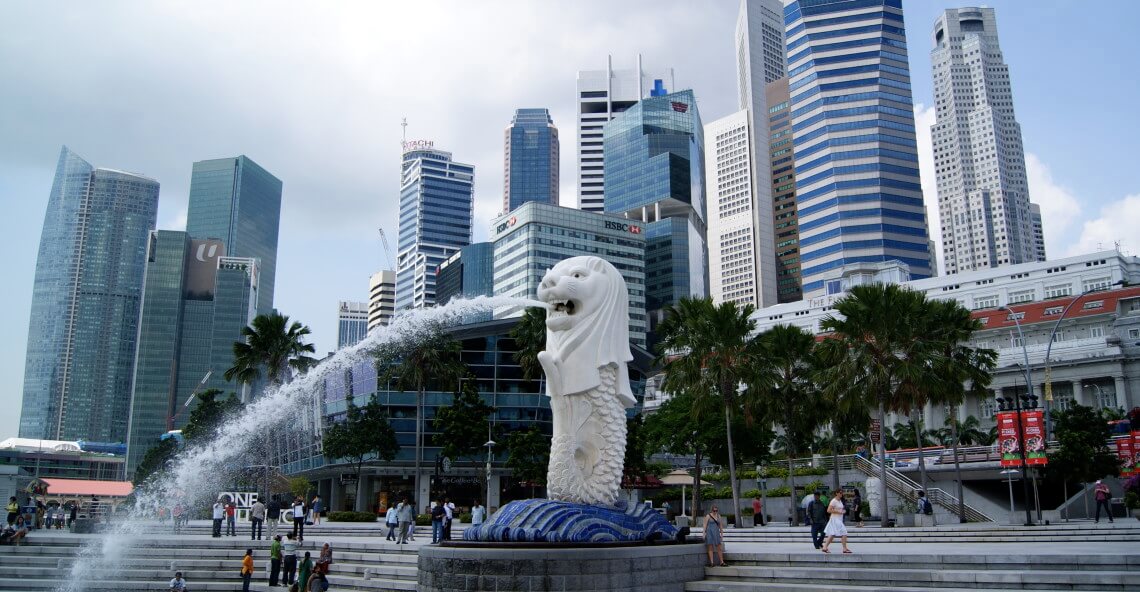
Singapore’s central bank and financial regulatory authority, wants to turn the city-state into the fintech hub of Asia.
As technology has changed the way we live, work and play, technology will change the way we transact, save and manage wealth, Ravi Menon, Managing Director at the Monetary Authority of Singapore (MAS), said in a conference on June 29, 2015.
The authority has recently committed S$225 million (US$166 million) to help boost the fintech sector. As part of its five-year investment plan, MAS has funded a blockchain-based record-keeping system.
“MAS will partner the industry to work towards the vision of a Smart Financial Centre, where innovation is pervasive and technology is used widely to increase efficiency, create new opportunities, manage risks better, and improve people’s lives,” Menon said.
One of the big trends in technology affecting finance is blockchains and distributed ledgers, which allow faster and more efficient processing, lower cost of operation and greater resilience against system failure.
With the likes of Citigroup, UBS and Barclays, already intensively exploring the technology, it is not so much about if blockchain tech will be universally adopted, but rather when.
“The important thing for our financial institutions is to be alert to these and other technology trends, understand their possible implications, and seize the opportunity to apply relevant technologies safely and efficiently – to boost productivity, gain competitive advantage, and serve consumers better,” Menon said.
Blockchain not Bitcoin
While it is still unsure whether bitcoin and cryptocurrencies will take off in a big way, “the bigger impact on financial services, and the broader economy, is likely to come from the technology behind bitcoins, namely the blockchain,” Menon argued.
Steven Tong, the managing director of Startupbootcamp Fintech Singapore, shares these thoughts.
Speaking with Deal Street Asia, Tong said he wasn’t much of a fan of cryptocurrencies, but sees many opportunities in blockchain tech. Tong said:
“Fundamentally, it’s the blockchain that brings about the innovation we’re seeking. […] Just look at bitcoin […] There’s an estimated 6 to 10 million bitcoin wallets and not all of them have actual bitcoins stored in them.Their acceptance rate is still very low. Until we find some real need for alternative currency, I’m not sure it will really take off.”
His program picked 10 startups earlier this year from various niches including wealth management, payments, P2P lending and online security, among which three of them are blockchain startups.
Toast, formerly CryptoSigma, is a remittance platform that uses the blockchain to make money transfers easier and cheaper.
Open Trade Docs, formerly Debune, allows people to store documents securely on the blockchain. This enables any document “to be kept in the loop in an easy manner, especially if smart contract features are built into it,” Tong explained.
Otonomos helps manage all commercial corporate actions in the blockchain. The startup allows entrepreneurs to set up “blockchain chartered companies,” in which shares are held “the same way as bitcoins are in a digital wallet.”
Tong said:
“This is clearly a trend that’s been going on overseas and if we can do this in Singapore, it will help demonstrate and build our thought leadership.”
Startupbootcamp Fintech Singapore counts among its backers MasterCard, DBS Bank, SBT Venture Capital, Route Sixty-Six Ventures, Intesa Sapaolo, Pix Vine Capital, Jungle Ventures, Estellion, Amazon, Intel, Samsung, Salesforce, Startup Blueprint Braintree, Google, and Infocomm Investments, the investment arm of Infocomm Development Authority of Singapore (IDA).
“The good thing of working with the government is the macro perspective you develop over time,” Tong said. “I’m looking at it as an entire startup ecosystem, rather than just a specific industry or accelerator. I’m looking at what are the issues and challenges of building a startup ecosystem.”
He concluded:
“Personally, I think Singapore has come a long way. In the 2007/2008 period, the startup ecosystem was pretty nascent. […] There’s still a lot of challenges that need addressing, but the authorities are aware of it and are taking steps to turn Singapore into an innovation-driven economy.”
Image credit: Singapore, Wikimedia; Ravi Menon, Prestige Singapore.

